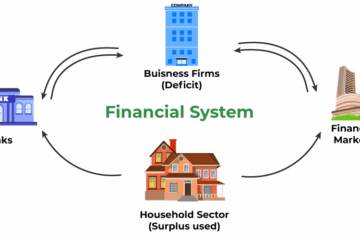Decoding Credit Scores: Essential Tips for Beginners
Advertising
Understanding credit scores is essential for anyone looking to secure their financial future. Credit scores serve as a snapshot of an individual’s creditworthiness and are used by lenders to evaluate the risk involved in extending credit or loans.
A credit score is a numerical expression based on an analysis of a person’s credit files, and it affects various aspects of financial life ranging from loan approvals and interest rates to housing rental applications and even job screenings.

A beginner’s approach to decoding credit scores involves grasping the basics of how these scores are calculated and the factors that influence them. Key elements that determine one’s credit score include credit history length, payment history, types of credit used, new credit inquiries, and the amount of debt carried. Credit scores typically range from 300 to 850, with higher scores indicating greater creditworthiness.
For beginners, it is imperative to understand the classification of credit scores. Scores are often categorized into ranges such as poor, fair, good, and excellent. Each range signifies the potential risk a lender may face: an “excellent” score usually means a borrower is very likely to repay loans on time, while a “poor” score suggests a higher risk of delayed payments or defaults. By familiarizing themselves with these concepts, individuals can take proactive steps to improve their scores and secure better financial opportunities.
Understanding Credit Scores
Credit scores serve as a crucial metric for banks and financial institutions to assess an individual’s creditworthiness. These numerical scores influence one’s ability to secure loans, credit cards, and even affect interest rates offered by lenders.
What is a Credit Score?
A credit score is a three-digit number that represents the risk a borrower presents to lenders. It is derived from an individual’s credit history, which includes the number of open accounts, total levels of debt, repayment history, and other factors. Credit scores typically range from 300 to 850, with higher scores indicating lower risk.
How Credit Scores are Calculated
The exact formula for calculating credit scores is proprietary, but the key components include payment history, amounts owed, length of credit history, new credit, and types of credit used. These are weighted differently depending on the scoring model in use, such as those developed by FICO or VantageScore. For example, FICO and VantageScore models range from 300 to 850, but specialized scores for auto financing or credit cards may use different scales.
The Importance of Credit Scores
Credit scores directly impact an individual’s financial opportunities. A high credit score may lead to lower interest rates, better loan terms, and increased chances of approval for credit or loans. Conversely, a low credit score can result in higher interest rates and may even lead to a denial of credit. Therefore, maintaining a good credit score is essential for those seeking to build or use credit for major purchases or financial leverage.
Improving and Maintaining Your Credit Score
Maintaining a healthy credit score is crucial for financial stability and obtaining credit with favorable terms. The following subsections outline key factors that influence credit scores and strategies to enhance and preserve them.
Decoding Credit Scores: Factors That Affect Your Score
- Payment History: This is the most significant factor. Late payments can negatively impact a credit score.
- Credit Utilization: Experts suggest keeping the credit utilization ratio below 30% of the credit limit.
- Length of Credit History: A longer credit history can contribute positively to a credit score.
- New Credit: Applying for multiple credit lines in a short period can reduce a credit score.
- Credit Mix: A diverse mix of credit types, such as credit cards and installment loans, is seen favorably.
Strategies for Improving Your Credit Score
- On-time Payments: Ensure all bills and loans are paid on time; even one late payment can harm a credit score.
- Manage Balances: Keep credit card balances low and avoid maxing out credit cards to maintain a low credit utilization ratio.
- Be Strategic with Credit Applications: Only apply for new credit when necessary, as each application can slightly decrease a credit score.
- Regularly Review Credit Reports: Check credit reports for inaccuracies that could drag down a credit score.
Decoding Credit Scores: Building Credit from Scratch
- Decoding Credit Scores: Starting with a secured credit card can help individuals establish credit by demonstrating responsible use.
- Become an Authorized User: Being added as an authorized user on another person’s credit card can help build a credit history.
Monitoring and Fixing Credit Report Errors
- Annual Credit Report Review: Individuals are entitled to a free credit report annually from each of the major bureaus.
- Dispute Errors: Incorrect information on a credit report can be disputed to have it corrected or removed, which may improve a credit score.
- Utilize Credit Monitoring Services: These services can alert individuals to changes in their credit report and help spot potential errors swiftly.




